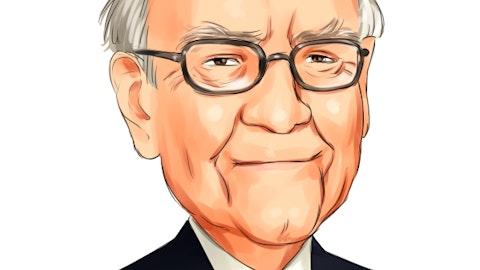Movies do not just entertain. They can also teach us, or help us understand complex issues, in less than two hours –which is not a minor achievement. In the past several weeks, I’ve been watching heaps of finance, money and Wall Street flicks, in order to elaborate a list of the best motion pictures in the field.
While many of the films in this inventory show a negative side of the issue –public relations do not seem like Wall Street’s strong point, they are still very entertaining, and educate us in many topics related to stock trading, futures, buyouts, and other associated subjects.
The movies in this list will allow you to explore your passion for investing from a different perspective than usual, and will certainly teach you which mistakes to avoid in your way to financial success –and also, once you’ve made it!
Wall Street (1987)
Oliver Stone’s classic movie needed to be the first one in this list –don’t worry, not all of my picks are as predictable or mainstream. The film, starred by Charlie Sheen and Michael Douglas, features a young and ambitious stockbroker (Sheen) hired by corporate raider Gordon Gekko (played by Douglas, in an Oscar-winning performance), who shows him the way of making lots of money, and fast. However -as you might figure- his practices, which include the use of insider information, are not exactly legal, nor ethical. A realistic thriller triggered by a realistic motivation: big money.
Interesting facts:
The movie’s budget was merely $15 million. Still, it managed to gross $43.8 million in North America alone.
Gordon Gekko is partly based on Michael Milken and Ivan Boesky.
The 2010 sequel, Wall Street: Money Never Sleeps, also directed by Mr. Stone was not nearly as good, in my opinion, but is still worth watching.
Pi (1998)
Darren Aronofsky’s opera prima, and probably his masterpiece (Black Swan fans, I’m sorry) is one of my overall personal favorites. Another thriller –yes, money is exciting and awakens passion, about a paranoid mathematician that becomes obsessed with a 216-digit number, which is supposed to carry a formula to predict the stock market. This film cannot, however, be summarized in a few lines without undervaluing its great depth.
Interesting facts:
The movie was filmed on high-contrast black-and-white reversal film.
It was produced on budget of $60,000, but still succeeded in grossing $3.2 million in U.S. box office alone.
Margin Call (2011)
“There are three ways to make a living in this business: be first, be smarter or cheat” John Tuld (Jeremy Irons).
This movie, also an exhilarating thriller –yet an indie production, shows the lives of several directives of an investment bank on the 24 hours that preceded the 2008 financial crisis. The events in the movie are triggered by a young analyst’s discovery: the company was leveraged with mortgage-backed securities to a point where it was no longer sustainable; volatility had gotten so high that the losses would widely surpass its market capitalization. Holding this information confronts him with the ruthlessness that can sometimes dominate the corporate world.
Interesting facts:
The investment bank featured in the film is vaguely modeled on Lehman Brothers.
House of Cards’ Kevin Spacey delivers an outstanding performance you should pay attention to.
Inside Job (2010)
Somewhat related to my previous pick, Margin Call, Inside Job is a documentary (narrated by Matt Damon) that seeks to expose some shocking and disturbing facts about the 2008 financial crisis. Through extensive investigation and interviews with people familiar with the issue, the film tries to prove that the financial crisis was “completely avoidable” (in the directors’ words).
Despite taking a strong position in relation to the 2008 crisis, the movie is both didactic and entertaining.
Interesting facts:
The director, Charles Ferguson, said that he tried to keep financial jargon to the minimum, so the picture could reach a non-specialist audience.
Ferguson holds a Ph.D. from M.I.T.
Enron: The Smartest Guys in the Room (2005)
This documentary investigates America’s –then- largest corporate bankruptcy, that of Enron Corporation. The film treats it more like a crime story than a financial or political issue. The picture basically shows how Enron managed to become (or actually, appeared to become) the seventh largest corporation in America, essentially based on a Ponzi scheme, and how, close to its end, it “robbed” its employees of their retirement funds in order to buy a little more time.
Interesting facts:
The film features several accounting tactics used to “enhance” a company’s financial results, like the mark-to-market method, and the hiding of its debt.
The picture is based on the book by Fortune Magazine reporters Bethany McLean and Peter Elkind.
Trader (1987) – Paul Tudor Jones
The one you can’t watch!
This hard-to-find movie (although it was aired on PBS in November 1987, only a few legal copies exist nowadays) shows young Paul Tudor Jones predicting the 1987 crash –and tripling his money in the process. It seems like Mr. Tudor Jones did not like the documentary, as he requested that it would be removed from circulation a few years after it was released.
Interesting facts:
The word is that Paul Tudor Jones bought almost all of the copies of the movie on VHS in order to prevent it from circulating.
The documentary surfaces from time-to-time but is usually put down within a few hours, for copyright infringement.





